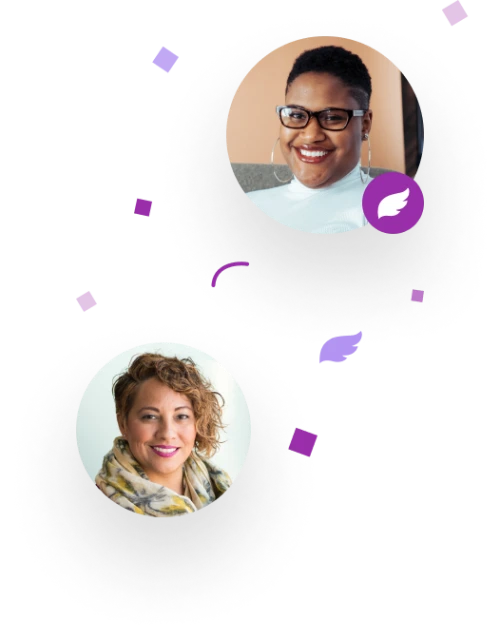What does being an "ally" mean to you?
My company has started more formal Diversity and Inclusion training, and the term "ally" is in almost every training session. How do you use the term "ally" and what does it mean to you?
To me, being an ally is not just supporting others, but rather actively working to make them feel respected and included. Would love to hear your thoughts and how you use the term "ally" — both at work and in your personal life!
Browse recent posts
I saw this today and thought I'd share:
Credit: https://www.linkedin.com/in/saurabhdubeyofficial/
1️⃣ We Work Remotely
One of the biggest remote job communities (4.5M+ visitors)
? https://weworkremotely.com
2️⃣ Remote Circle
Helps match remote jobs to your timezone across industries
? https://remotecircle.com/
3️⃣ Hubstaff Talent
Connects businesses with freelancers + agencies worldwide
? https://hubstafftalent.net
4️⃣ Remote Woman
Focused on remote opportunities designed for women
? https://remotewoman.com/
5️⃣ Remotive
Curated list of top, fully remote tech jobs
? https://remotive.io/
6️⃣ Wellfound
Connects job seekers to 130K+ startup jobs from 27K companies
? https://wellfound.com/
7️⃣ AI Jobs
Find top-tier remote jobs in AI companies
? https://theaijobboard.com
8️⃣ WorkWave
Browse flexible remote job listings across sectors
? https://www.workwave.com/
9️⃣ Toptal
Elite freelance network for developers, designers, and finance experts
? https://www.toptal.com/
? JS Remotely
Specializes in JavaScript-based remote roles (React, Vue, Node.js)
? https://jsremotely.com/
1️⃣1️⃣ RemoteOK
Browse remote job postings by category or salary
? https://remoteok.com
1️⃣2️⃣ FlexJobs
Discover remote jobs globally, plus career support services
? https://www.flexjobs.com/
? BONUS
TOP Courses from Google
These courses are:
- Taught by the leading professionals.
- Relevant for all levels of expertise.
- Deeply impactful.
? 7000+ Courses Access : https://lnkd.in/gYvi-99j
<> Google Data Analytics:
? https://lnkd.in/gaN9SjKw
?Google's Python Programming Course
? https://lnkd.in/g8FKnPhj
?Google Generative Al
? https://lnkd.in/gM4KwFKB
?Google IT Support Professional Certificate
? https://lnkd.in/gACp8-Nm
?Google IT Automation with Python
? https://lnkd.in/gsqzNcgt
?Reliable Google Cloud Infrastructure: Design and Process
? https://lnkd.in/gpRZasKm
?Preparing for Google Cloud Certification
? https://lnkd.in/gP_9WMCz
? Google UX Design Professional Certificate
? https://lnkd.in/gdTGhjid
?Google Cybersecurity Professional Certificate
? https://lnkd.in/gxn8iUXi
?Google Ads Certifications
? https://lnkd.in/ggh-skMZ
?Google Project Management Professional Certificate
? https://lnkd.in/gZmqYxj5
?Google Professional Workspace Administrator
? https://lnkd.in/grxRZQr6
0 Likes • 0 Comments
How Is the LWD Full Form Explained in HR and Payroll?
In HR and payroll, LWD refers to the final date an employee officially works for an organization. It marks the end of the employee’s active employment and is used as a key reference for exit formalities.
From an HR perspective, LWD helps manage the employee exit process. HR uses this date to stop attendance tracking, deactivate system access, collect company assets, and issue important documents like the relieving letter and experience letter. It also confirms that the employee has completed the required notice period or received approval for early release.
From a payroll perspective, LWD is crucial for salary calculations. Payroll teams calculate the final salary based on days worked up to the last working day. Any unpaid leaves, bonuses, deductions, or notice period recoveries are adjusted using the LWD. Full and final settlement is processed after the LWD, usually within a defined timeline.
3 Likes • 1 Comment
AI Recruiter?
I applied to two different external recruiting sites (they've been around for a long time so I know they're legit) and immediately received a text saying, "Hi, this is Alex, I am a virtual AI recruiter with xxxxxxx. I was hoping to speak with you regarding the xxxxxxxx position you applied for. Feel free to give me a call back when you get a chance, or let me know what time works best for me to call you back. Thanks!" And then I'll get a phone call from the bot.
This has happened on both these sites. Can anyone in recruiting explain what this is?
1 Like • 2 Comments
I am feeling a resistance from tenured peers
hey all! Im in a leadership role and I've been at this place for under a year. We have a chunk of folks who have been there 10+ years. Old school thinking. Old school processes.
My role involves something similar to operational excellence. It's not going well. People will say to my face how glad they are Im there and then slide in snide comments or get worked up when Im told by our executive to fix something in their area.
Its making things uncomfortable. I wont get into everything as far as aggression and slights to remain anonymous.
I tactfully spoke to some face to face to make sure all was good and of course got all the niceties.
Anyone deal with this before? The job market sucks so I cant just go to a more progressive company where I am a better fit.
I like my boss but as they say he doesn't want no smoke lol and our HR is junior.
Appreciate any advice. Or just a pep talk.
9 Likes • 26 Comments
I am a Diplomat by training with a Bachelor of Arts in International Relations and Diplomacy, multilingual in English, French, and Kiswahili, and with extensive experience driving global and community-level initiatives across sustainable development, gender equality, youth leadership, climate change, and peacebuilding.
With hands-on experience in research, policy advocacy, programme design, project management, and stakeholder engagement, I have successfully led multi-phase initiatives, authored policy briefs, coordinated youth consultations, and partnered with international organisations to deliver measurable impact. Notable achievements include designing a leadership programme that empowered 150 girls and women, co-authoring inclusive climate policy briefs adopted by regional youth networks, and managing multi-country sustainability projects under relevant fellowships.
I bring transferable skills in analytical research, writing, communication, programme coordination, partnerships, monitoring and evaluation, and cross-cultural collaboration, enabling me to contribute meaningfully to roles in research, policy, programme support, advocacy, communications, partnerships, and sustainable development. I am comfortable working in remote, hybrid, and multicultural environments.
I am actively seeking opportunities, including but not limited to International development roles, gender specialist, climate-related roles, peace and security, research, policy, project management, communications, advocacy, partnerships, sustainability, where I can apply my skills, leadership, and experience to deliver results and drive meaningful and sustainable impact.
I would also appreciate mentorship, advice, networking, and support in relation to my career and how I can land the ideal job.
1 Like • 1 Comment
How do you handle a situation where your boss says they want to offer you a transition package because they want you to take care of your family, and they don’t want you to stay anywhere where you feel that you not a fit.
The company since April culture has changed. They are hiring younger certain type or older type. I spoke to my boss who came on in April that I needed to be included in key conversations or if the company was going in a different direction let me know. This was a week ago. He mentioned my replacement who fit the description of the type of employee they have hired since April.
4 Likes • 10 Comments
© 2025 FGB Muse Group Inc.


Share your insight
Join an authentic community that helps women support each other at work. Share your professional experience or ask for advice — you can even post anonymously.